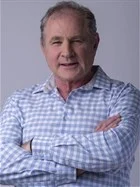
Top stories






More news

















| Money | Family | Career | Health | |
| Money | ||||
| Family | ||||
| Career | ||||
| Health |
If very few squares remain blank, then you're like most people - all your problems and issues relate to each other. For those squares that are blank, if you thought about it long enough, you would find a link - a somewhat tenuous one maybe, but a link nonetheless. Life is a complex business.
This principle of interconnectivity amongst issues has a name: organised complexity, and Mason and Mitroff (2003) propose that it applies at any scale, from corporations to countries: "Every real world policy problem is related to every other real world problem."
If people say that life is more complicated today, in spite of the fact that the world is smaller due to enhanced communication - they're right. In the old days, we were in villages, not part of the global village, so the complexity was relatively disorganised - all the variables (people in this case) were somewhat independent. That situation was fine for statistical sampling - we were all relatively independent-thinking pieces of discrete data. But no longer. The insurance industry, for example, is finding that their calculations on the probability of death and accident are becoming less reliable, as people become more connected.
Today, more and more of the problems we encounter are neither simple nor chaotic, but exhibit more of the characteristics of this organised complexity.
Here are 6 characteristics of organised complexity problems, the knowledge of which could make for better strategy:
1. Everything is connected - the problem as well as the solution. Don't only focus on isolated pieces of information - the relationship between things can often provide vital clues. The work might not be coming out on time, because of conflict in the studio, which may be due to a management skills gap, due to habits we acquired in a recession - such as an absence of training investment.
2. Organised complexity is messy - your challenge is to find leverage points where intervention can make a difference. People may not be buying your chocolate bar, not because of health reasons or changing tastes, but because a competitor has negotiated better displays, appealing to the time-pressed consumer.
3. There will always be uncertainty. Your job is to decrease it to an acceptable level. There is usually an optimal amount of research, where further discussion does not advance the strategy. When you revisit the same issue twice, you're probably beginning to waste your time trying to engineer uncertainty out of the system - and that's not going to happen.
4. There will always be ambiguity. There is no one right way of defining the problem. Nobody really knows the effect of advertising, and very often there are numerous combinations of message and media that will result in the same level of sales. However, you need to focus on something, the acceptance of which will often depend more on the personal preferences of your client, than its inherent effectiveness.
5. There is conflict in an organised complex system. People often have to live with the results of your strategy. Change is difficult for everyone, so it may be a good idea to find out what the motives are for their current behaviour (even if it is inefficient), before recommending an alternative.
6. There are market and system constraints - some things just won't fly. What works in FMCG may not cut it in medical. Get to know the category - it's not that difficult - people love to talk about their role and what they do.
Then do what all good strategists do: Take a bath.
Bathe yourself in everything without judgement, then organise the complexity into a coherent story, and if the story makes sense - begin to tell it.
Reference: Richard Mason and Ian Mitroff. Complexity: The nature of real world problems. In Bob de Wit and Ron Meyer, Ed. Strategy Synthesis, Thomson Publishing 2003, p26-36.
